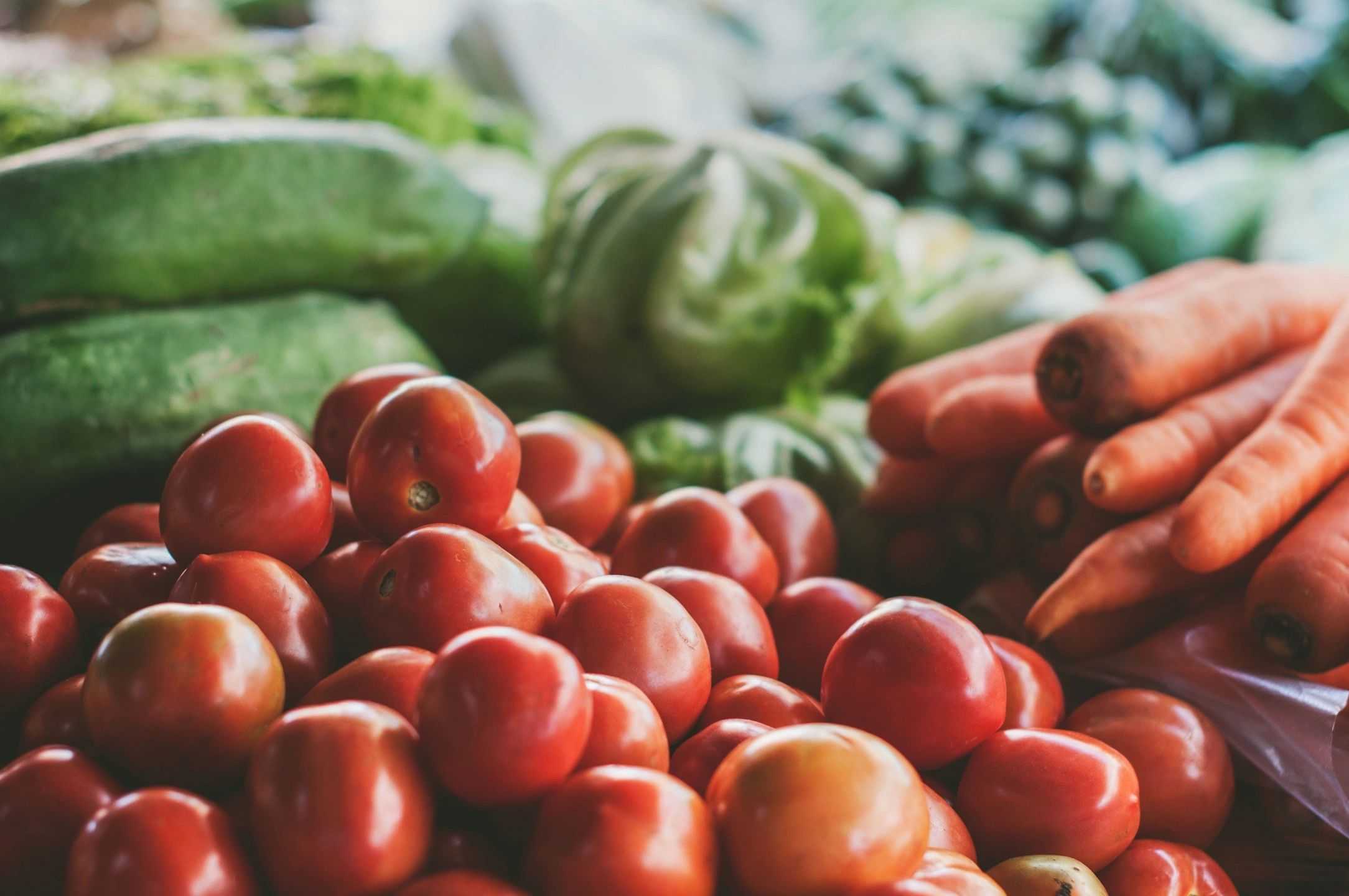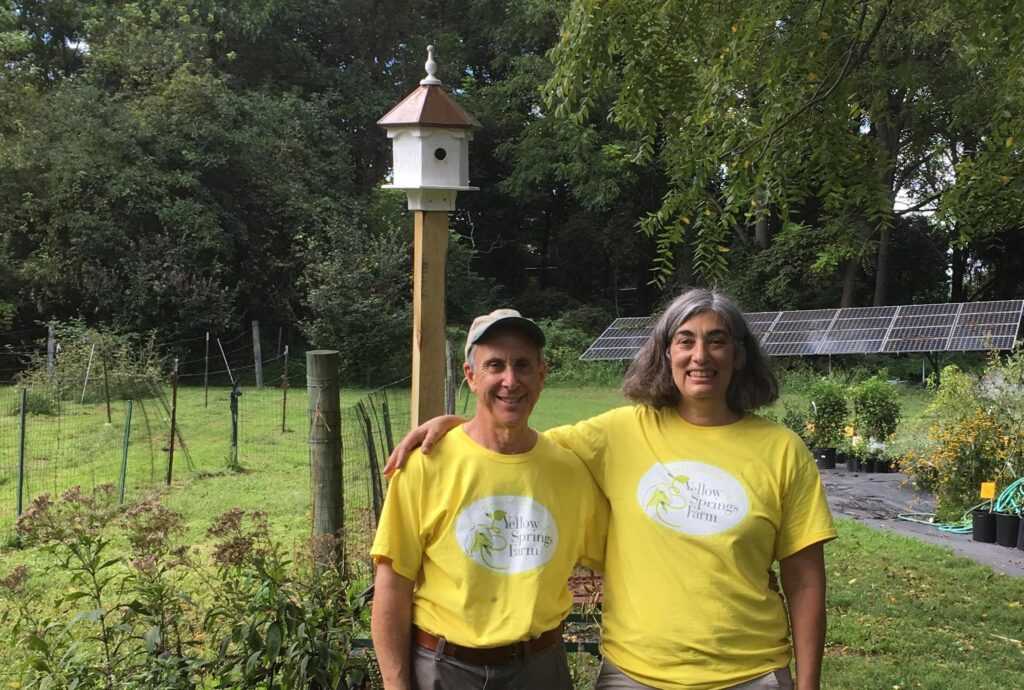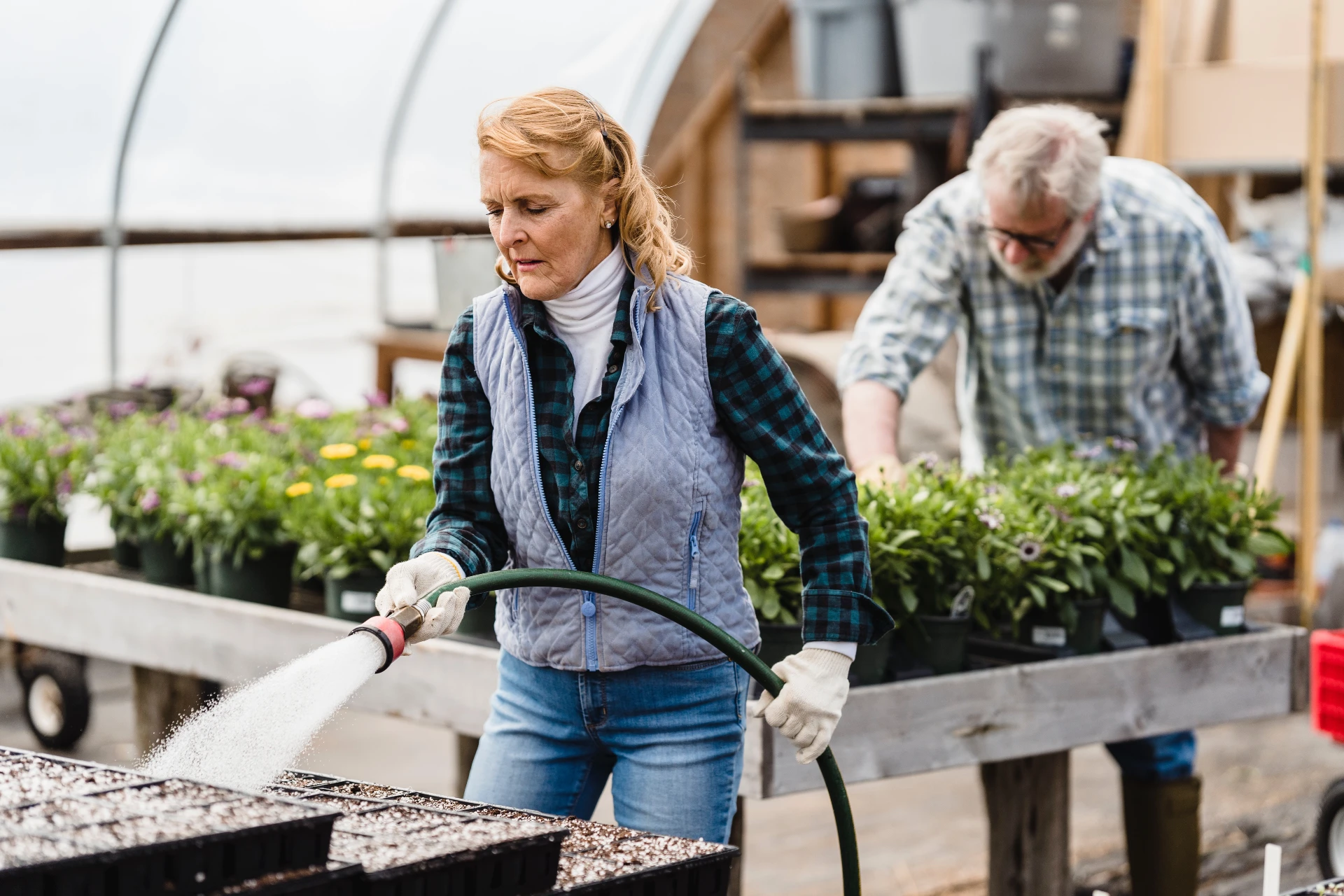What if you could transform your ideas and agricultural commodities into new, commercially viable products? Learn how and explore opportunities during our free six-week, immersive workshop, From Ideas to Profits: Developing Successful Value-Added Products.
Instructors Al and Catherine Renzi, who founded and sold a successful cheesemaking business, will guide you through the entire product development process, with topics ranging from formulating recipes to navigating legal requirements. At the end of the program, you’ll come away with a personalized roadmap for commercialization of your very own value-added product.

Learn how you can start with an idea and a commodity, and turn them into a viable product.
Here’s an overview of the curriculum.
Any agricultural producer is eligible to participate in this program; however, priority will be given to those doing business in Maryland, Delaware, D.C., and Virginia.

Al and Catherine Renzi
Al and Catherine Renzi founded Yellow Springs Farm in 2001 in Chester County, Pennsylvania, where they purchased a 19th-century dairy farm. They began producing and selling artisanal goat cheese; over the years, their cheeses won a number of awards and enjoyed distribution with Whole Foods Markets, along with numerous specialty stores and fine restaurants. After selling the farm in 2021, the Renzis are excited to use their expertise to support and empower other aspiring value-added producers.

Mini-Grants up to $5,000 are available for:
– Market Research and Validation of Target Market
– Customer Acquisition
– Product Development Initiatives
– Food Safety Classes
Eligibility
Value-added producers and companies with traction ($20,000 or more in yearly revenue) in Maryland and Delaware are eligible to apply for Mini-Grants. Participants may apply once for each of the categories. Applicants must demonstrate that they have a unique and differentiated product or service that incorporates an aspect of innovation or technology in its production, processing, distribution, or other element of the food supply system.
Applications are accepted on a rolling basis. Award decisions will be made and funds will be available no later than three weeks following the receipt of a completed application.
Application Process
Applicants must submit Mini-Grant proposals by filling out the form at this link. Copy(ies) of quote(s), proposal(s), estimate(s), or any other supporting documents.
CAIC offers access to Subject Matter Experts (SMEs) who can offer authoritative advice based on their deep knowledge and experience in a specific area. See the ADVISORS page of this Web site to learn more about the SMEs who are available to CAIC participants.